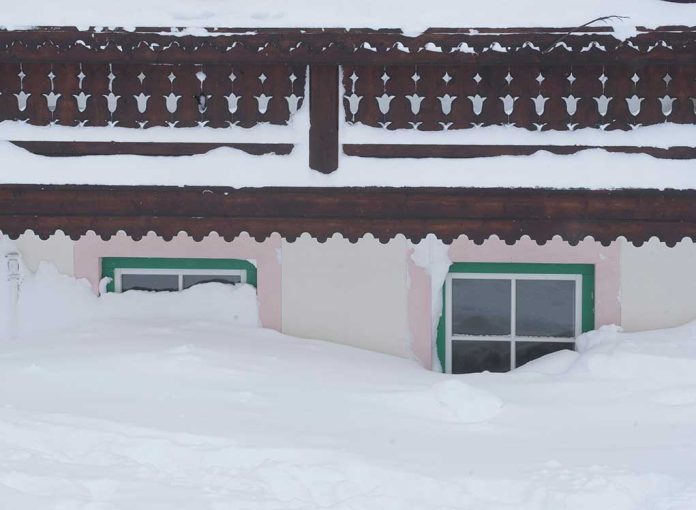
Winter’s unpredictability demands thorough home preparation to ensure safety, comfort, and efficiency during the cold months ahead.
At a Glance
- Regular maintenance of smoke and carbon monoxide detectors is crucial for winter safety.
- Inspect and clean chimneys, fireplaces, furnaces, and roofs to prevent hazards.
- Insulate water pipes, sprinkler systems, and attics to prevent freezing and bursting.
- Prepare emergency kits for home, vehicles, and pets.
- Improve home insulation and address air leaks to retain heat and reduce energy costs.
Essential Safety Measures
As winter approaches, homeowners must prioritize safety. Regular maintenance of smoke and carbon monoxide detectors is essential. Inspect and clean chimneys, fireplaces, furnaces, and water heaters to prevent fire hazards and ensure efficient heating. Roof inspections are crucial to identify and repair any damage before heavy snow and ice accumulation.
Preparing emergency kits for your home, vehicles, and pets is a key step in winter preparedness. These kits should include essentials like non-perishable food, water, first-aid supplies, and warm clothing. Knowing emergency procedures and locations of cold weather shelters in your area can be lifesaving in extreme situations.
Winter’s coming — keep your home safe and cozy!
– Install and test smoke alarms and carbon monoxide detectors with battery backups.
– Learn how to keep pipes from freezing.
– Remove leaves from gutters.Safety tips: https://t.co/Zhc5f708Eq#WinterReady pic.twitter.com/PZB8SWL5Hd
— Readygov (@Readygov) November 19, 2024
Insulation and Energy Efficiency
Proper insulation is critical for maintaining a warm, energy-efficient home during winter. Focus on insulating water pipes, especially those in unheated areas, to prevent freezing and bursting. Attic insulation helps retain heat and reduces energy costs. Address air leaks around windows and doors with weather stripping or caulking.
Consider investing in fiber cement siding for better insulation and durability against harsh winter conditions. Improve indoor lighting to compensate for shorter days and ensure outdoor areas are well-lit for safety. These measures not only enhance comfort but also contribute to energy conservation.
Preventing Water Damage
Water damage is a significant concern during winter. Regularly clean gutters and storm drains to prevent ice dams and leaks. Insulate water hoses and sprinkler systems to avoid freezing. For added protection, consider using foam, heating cables, or pipe sleeves on vulnerable pipes.
Trim tree branches near the roof to prevent damage from falling limbs during winter storms. Ensure your roof is clear of debris and safe from snow and ice accumulation. These proactive measures can save homeowners from costly repairs and ensure a dry, comfortable living space throughout the winter months.
Power Outage Preparedness
Winter storms often lead to power outages. Consider investing in a home generator to maintain essential systems during blackouts. Ensure you have backup items for medically necessary equipment if you or a family member has medical conditions. It’s crucial to understand proper generator usage to prevent carbon monoxide poisoning.
Maintain driveways and sidewalks to prevent ice buildup, ensuring safe access to and from your home. Review your home and car insurance policies for winter-related coverage, and inform your insurer about winterizing measures you’ve taken, as this may potentially reduce premiums.
Indoor Air Quality and Health
Managing indoor air quality becomes increasingly important during winter when homes are sealed tight against the cold. Regularly change furnace filters and consider using a humidifier to maintain optimal humidity levels. These steps can help reduce the spread of germs and alleviate respiratory issues common in dry winter air.
For those with disabilities or medical conditions, take extra precautions. Notify utility companies about life-sustaining equipment to ensure priority service restoration in case of outages. Prepare a backup plan for medical care or equipment that requires electricity. By taking these comprehensive steps, homeowners can face winter with confidence, knowing their homes are prepared for whatever the season may bring.
Sources:
- Guide to Winter Home Safety
- Beat the Winter Woes: 9 Tips to Protect Your Home From Mother Nature
- How to Prepare Your Home for Winter










